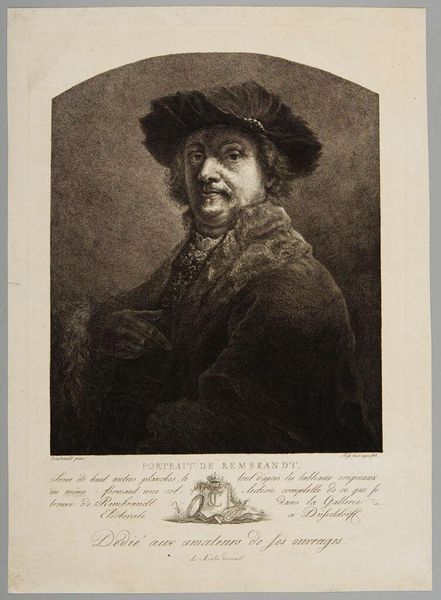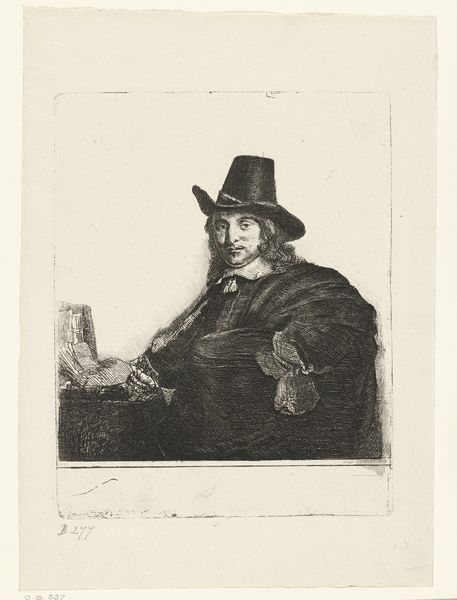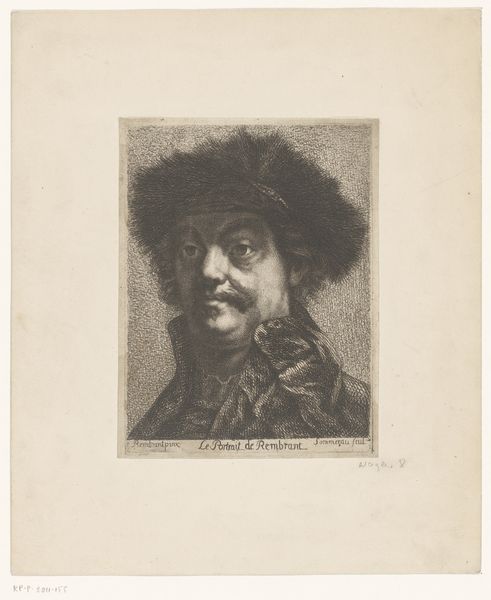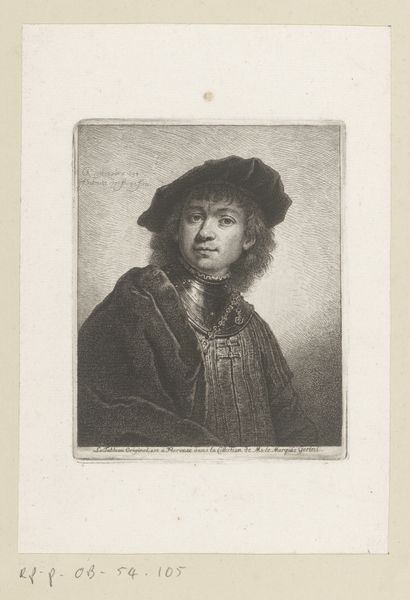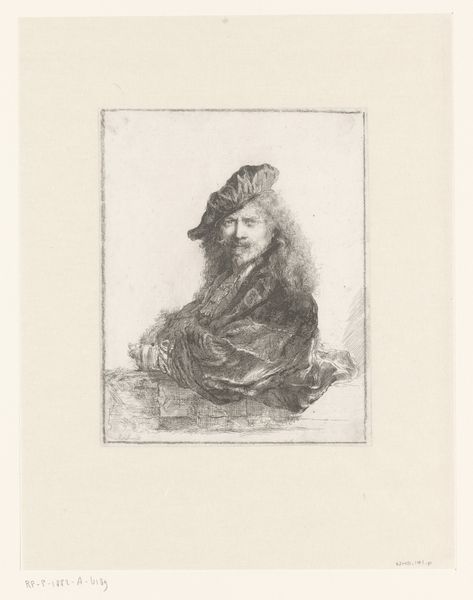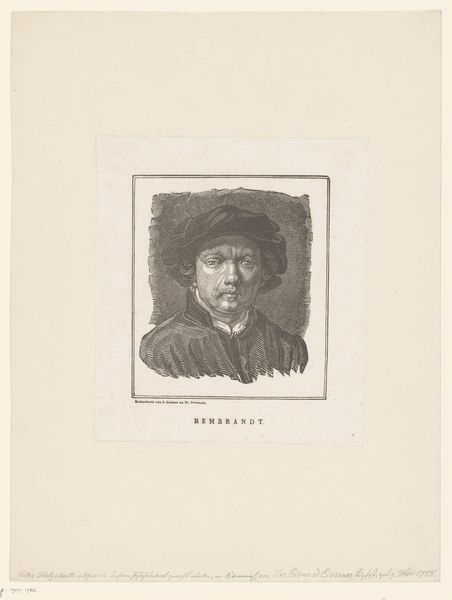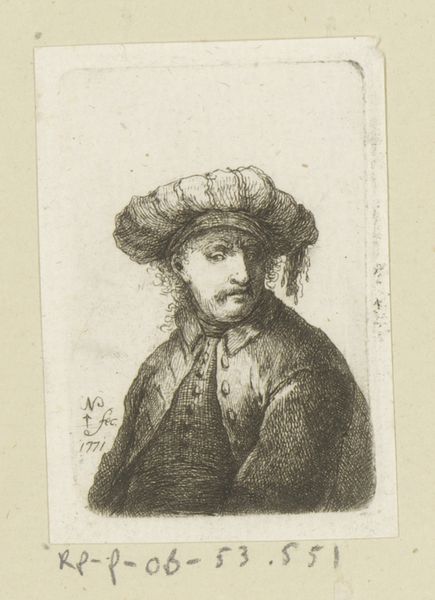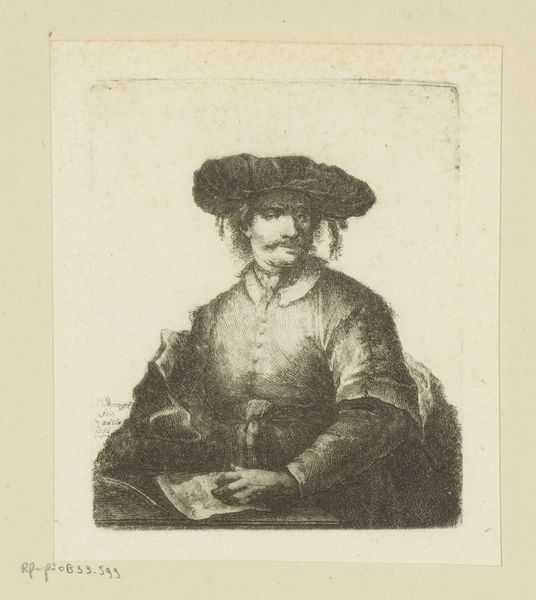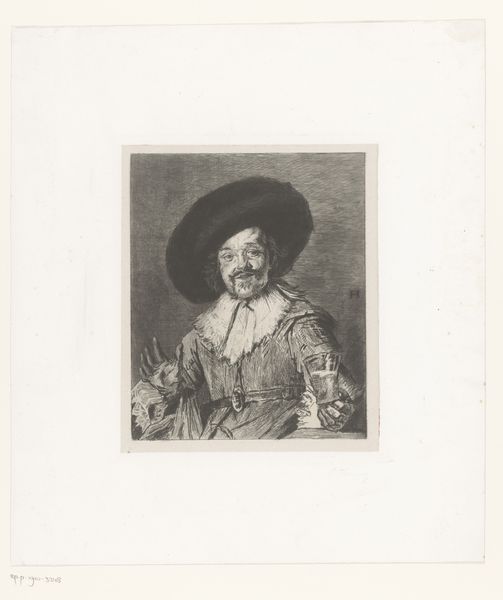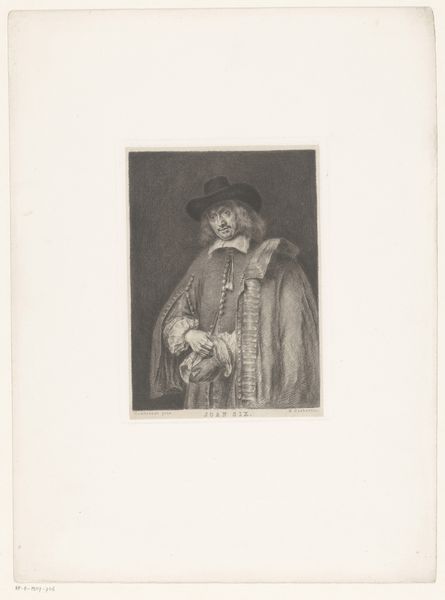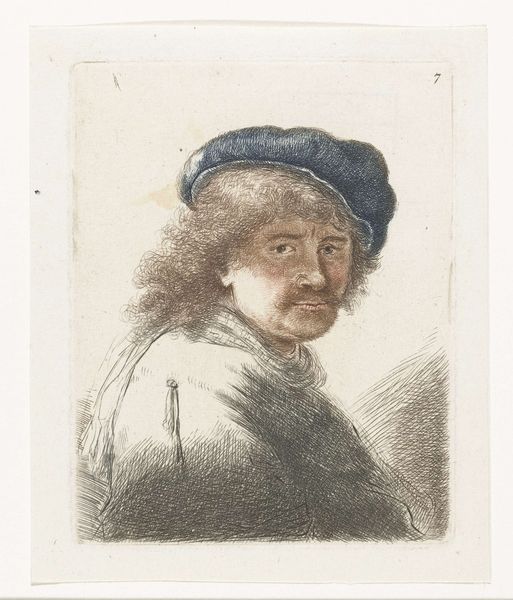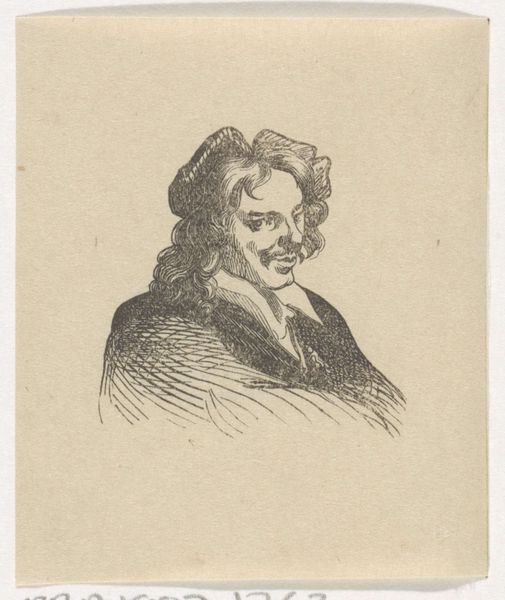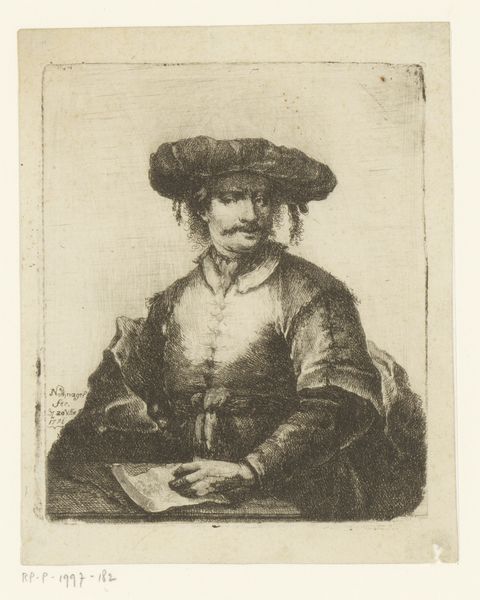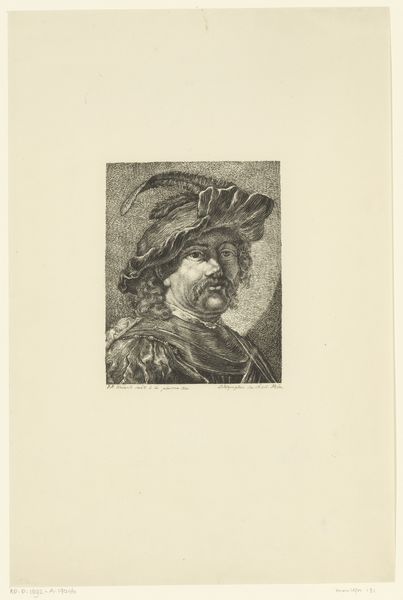
print, etching
#
portrait
#
neoclacissism
# print
#
etching
#
portrait drawing
Dimensions: height 339 mm, width 225 mm
Copyright: Rijks Museum: Open Domain
Carl Ernst Christoph Hess created this engraving, a portrait of Rembrandt van Rijn, sometime before his death in 1828. But this is not simply a picture of a man; it’s Hess’s understanding and interpretation of Rembrandt’s artistic persona, made at a time when the idea of the ‘genius artist’ was gaining cultural traction. The image creates meaning through a set of visual codes, associating Rembrandt with the values of the late 18th and early 19th centuries. Hess likely drew inspiration from institutional sources, such as art academies which were becoming increasingly influential in shaping artistic taste and historical narratives. The use of engraving itself speaks to the democratizing impulses of the era, as printed images made art more accessible to a wider public. Understanding this work requires us to delve into the artistic and social history of 19th-century Europe. Researching the cultural institutions, artistic conventions, and prevailing social attitudes of the time can reveal much about the image’s creation and reception.
Comments
No comments
Be the first to comment and join the conversation on the ultimate creative platform.
